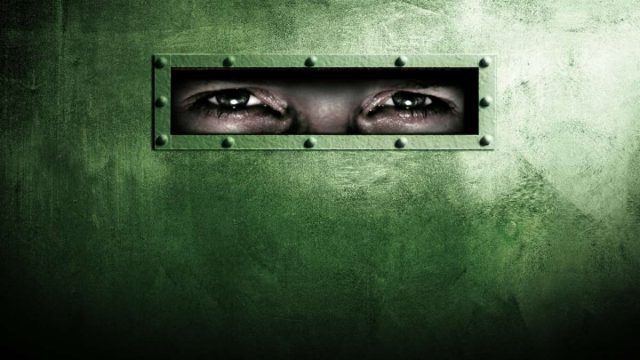“Let me tell you something, coach. Even with all your good intentions, all your reforms, and all your overall policies, I ain’t ever going to change. We ain’t ever going to change. None of us.”
In the 1980s, Hill Street Blues pioneered a new way to tell stories for television. The show creators Steven Bochco and Michael Kozoll populated their show with a sprawling ensemble of characters and built stories that didn’t need to end with the episode, sometimes taking several episodes, or even a full season, to reach a conclusion. They allowed their stories to breathe, and by doing so, they were able to find a deeper level of emotional and intellectual depth to the stories they told. There were of course great shows before Hill Street, but those shows tended to have clear-cut good guys and bad guys. Their stories were relatively simple and entertaining. Hill Street Blues opened a new door in the television industry, and many successful shows using the fresh template Blues pioneered appeared in the following years.
And then along came HBO and Oz. Oz didn’t so much as open a door as kick the door off its hinges. With an unprecedented level of creative freedom, series creator Tom Fontana created a show that was more mature than anything that had ever been seen on TV before. Nobody had seen anything quite like the level of violence, sexuality and grittiness that Oz displayed on a weekly basis. Where else could you watch a man get a swastika burned onto his ass? Or watch one character savagely beat another character and then defecate on their face? What other show had central figures that were neo-Nazis, murderers, rapists, cannibals and gangsters?
Welcome to Oz.
One of the most amazing things about Oz is that it has the most insane cast ever – a regular smorgasbord of scenery-chewing actors – to play its inmates and prison workers. Lee Turgesen stars as Tobias Beecher, just a regular guy who had a decent life on the outside but after killing a little girl while driving drunk he is now stuck inside a place he has no business being, a place that will eat him alive. His cellmate is the evil bastard Vern Schillinger, played by the amazing J.K. Simmons. Schillinger takes the confused, pathetic Beecher under his wing and manages to turn Beecher into something neither of them thought possible – an inmate who has no trouble using violence to get shit done. The feud between Beecher and Schillinger would last six seasons and would create a tangled web of death, violence, and hatred.
There are others. Oh, there are others. Adewale Akinnuoye-Agbaje plays the hulking Simon Adebisi whose little hat seems to defy gravity by staying on his head. Eamonn Walker plays Kareem Said, the leader of the Muslim Brotherhood, who wants nothing other than to fight the system and start a riot. Harold Perrineau plays Augustus Hill, a wheelchair-bound inmate and the series’ omniscient narrator who monologues to the audience from the inside of a rotating cell (this device, resembling the Chorus from Greek plays, is one of the most striking images in the series). Dean Winters plays the cunning Ryan O’Reily, who would feel right at home as the villain of a Shakespeare play. Oz is his playground, and he moves through its various factions like a snake, whispering deceit and making others do the dirty work.
Not everyone inside Oz is a criminal, however. Ernie Hudson plays Leo Glynn, the warden of Oswald State penitentiary who believes that the prisoners are in prison for a reason – to punish them for their crimes. Terry Kinney’s Tim McManus, in charge of Emerald City, where the majority of the show takes place, thinks prison is the perfect place to rehabilitate them. B.D. Wong plays Father Ray Mukada, the chaplain who tries to absolve Oz’s sinners of all their sins. Rita Moreno plays Sister Peter Marie, the prison’s psychologist and drug counselor. Also, a pre-Sopranos Edie Falco plays Diane Wittlesey, a correctional officer who gets involved with both Tim McManus and a newly arrived inmate who shares a link to her past. It’s not the most glorious role for Falco, but she leaves after the second season to pursue bigger and better things.
Oz is not a particularly subtle show. And it can sometimes be a little wild in its plotting (you often need to rack your brain just to keep everyone’s relationship to one another in order). It can also go a little off the rails – the aging pill anyone? But Oz is always entertaining. It takes the classic formula of sticking a group of people with different ideologies into the same room to watch how they interact with one another. Oz is a powder keg, and all the inmates are standing over it with their arms outstretched with a lit match in their hands. In the end, things will burn. The show gets more and more ridiculous the longer it goes on. I’ve mentioned the aging pill, but there are also ghosts, a musical number, and a body count that would make even the most hardened defender of imprisonment wince. This show is bonkers.
If Oz had failed, if it had taken the unprecedented level of creative freedom that HBO allowed and fucked it up, would we have gotten The Sopranos or The Wire or Deadwood? I don’t know the answer to that but I do know that I don’t want to live in a world where Oz was a failure. Oz will never be as well known as The Sopranos or The Wire, but it did break down the door that allowed creators to finally express themselves in a way they had never been able to before. And for that, we should give Oz a big thank you.


